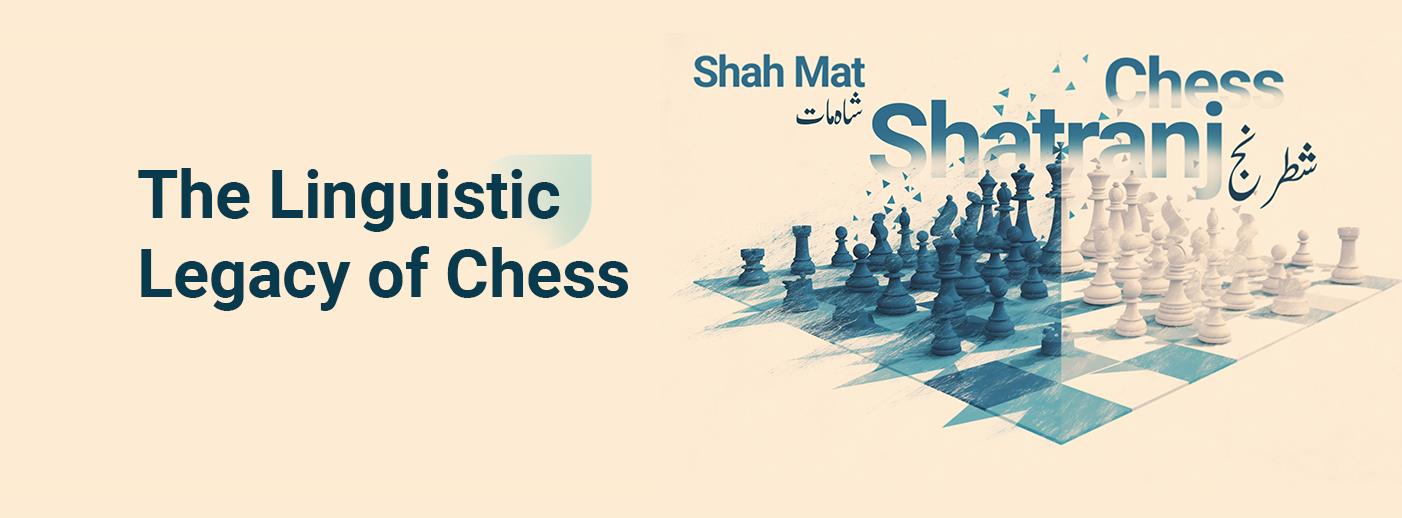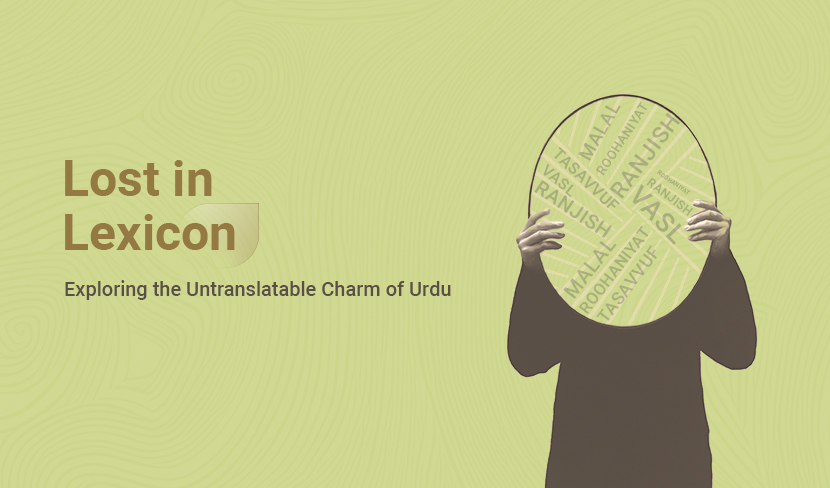زیادہ تلاش کیے گئے الفاظ
محفوظ شدہ الفاظ
کِھسیانی بِلّی کَھمبا نوچے
جسے غصہ آرہا ہو وہ دوسروں پر اپنی جھلاہٹ اتارتا ہے، بے بسی میں آدمی دوسروں پر غصہ اتارتا ہے، شرمندہ شخص دوسروں پر اپنی شرمندگی اتارتا ہے، کمزور کی جھنجھلاہٹ
چَمَنِسْتان
ایسا باغ جہاں پھول کثرت سے ہوں، ایسی جگہ جہاں دور تک پھول ہی پھول اور سبزہ سبزہ نظر آئے، گلزار، گلستان، باغ، پھولوں کا قطعہ، سبز کھیت
The Linguistic Legacy of Chess

The historical study of words is a fascinating field of knowledge. Chess, or Shatranj (شطرنج) as it is known, has an intriguing origin story, beginning in India.
The ancient Indian army comprised four elements: infantry, cavalry, elephants, and chariots. Because of this, the army was called "Chaturanga" (चतुरंग) in Sanskrit, meaning "the one with four organs, limbs, or parts." Chatur means "four," and Anga means "organ" or "part."
When a game simulating a contest between two armies was invented, it was aptly named "Chaturanga." This word entered Persian as "Shatranj" and later transitioned into Arabic as Shatranj. From Arabic, the word found its way into Portuguese as xadrez. In Portuguese, the letter "x" is pronounced as "sh," so the word is pronounced "Shadrez." Here, the "n" was dropped, and the "j" was replaced with a "z."
In other European languages, the name of this game is also derived from Arabic, though the exact word Shatranj did not directly enter them. One of the chess pieces is called Shah, a Persian word meaning "king."Since the Shah (شاہ) is the most crucial piece in chess, many European languages named the game after it. For example, in German, chess is called Schachspiel, meaning "the game of the king," where Shah becomes Schach.
This same word Shah entered Old French as esches. From France, it travelled to England, and during this journey, the first two letters were dropped. By the time it reached London, only "ches" remained. An additional "s" was added at the end, resulting in the modern term "chess."
If an opponent’s king is in jeopardy, the term for this in chess is Al-Shah Mat (شاہ مات), meaning "the king is dead." This phrase influenced Russian, where chess is called Shakh Mat.
This story doesn’t end here. Consider the term check, as in a bank draft used in financial transactions. In British English, it's spelled "cheque."
Would you believe that this is a Persian word that entered European languages through Arabic?
In the game of chess, when a player threatens the opponent’s king, they shout Shah as a warning, meaning, "Watch your king, as it’s being threatened." This exclamation entered European languages through Latin. In Old French, two forms of the word emerged: esches and eschec.
The first form, esches, evolved into chess in English, referring to the game itself. The second form, eschec, became check in English, used to warn the opponent about their king’s status.
Since saying check signifies halting the opponent's king's progress, the word "check" came to mean stopping or slowing down an action. Over time, it evolved to mean "preventing a mistake." Preventing mistakes involves scrutiny, so "check" came to be used in accounting for oversight and verification. Thus, it began to refer to a "counterfoil," preventing forgery.
In 1755, Dr. Johnson defined "check" in his dictionary as a "correspondent cipher of a bank bill," meaning an exact copy of a bank draft.
When check became associated with banks and large financial transactions, the English changed its spelling to cheque to give it a more dignified appearance, severing its connection with games and linking it to finance.
Americans, being practical, did not worry about appearances and kept the original spelling "check," maintaining its association with halting or blocking.
An interesting fact comes to mind: In traditional Indian households, a chessboard-patterned sheet made by joining two different-colored fabrics is often spread over a divan and is called shatranji (شطرنجی).
Delete 44 saved words?
کیا آپ واقعی ان اندراجات کو حذف کر رہے ہیں؟ انہیں واپس لانا ناممکن ہوگا۔






